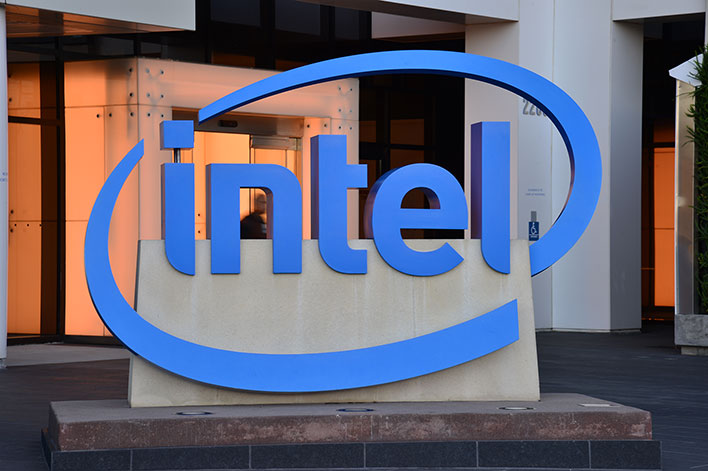Intel Hit With $2 Billion Fine On Obscure Decades-Old Patent Infringement Claim

The two patents in question include 759, which details a "method of controlling a clock frequency," and 373, which covers a "minimum memory operating voltage technique." But we first need to step back to 1999, when Philips Semiconductors bought VLSI for $1 billion. The company's assets later piggybacked to NXP, which was spun-off by Philips in 2006. And then that's where the ownership of the patents takes series of twists and turns.
"One of the patents was originally issued in 2012 to Freescale Semiconductor Inc. and the other in 2010 to SigmaTel Inc," explains Bloomberg. "Freescale bought SigmaTel and was in turn bought by NXP in 2015." And that's where VLSI comes back into the picture. The company rose from the grave in 2019 with the sole purpose of looking for a legal battle with Intel. During this year, patents 373 and 759 were transferred to VLSI Technology LLC., which then proceeded to sue Intel for infringement.
For its part, Intel saw no merit in the lawsuit and basically called VLSI the tech equivalent of The Walking Dead. Intel argued in court that VLSI "took two patents off the shelf that hadn't been used for ten years and said, 'We'd like $2 billion,'" according to Bloomberg. The world's largest chipmaker went on to argue that handing VLSI a victory in court was in effect "taxing the true innovators."
VLSI chief counsel Morgan Chu countered that Intel had "incorporated NXP's inventions into its own chips" without paying reasonable royalties. Unfortunately for Intel, the jurors sided with VLSI's arguments, awarding $1.5 billion for the first patent and $675 million for the second ($2.18 billion total).
Intel, of course, disagrees with the ruling and says that it is "confident" that it will prevail on appeal. The $2.18 billion verdict is a considerable sum, even for a company like Intel. To put that figure in perspective Intel's [GAAP] net income for Q4 2020 was $5.9 billion.

